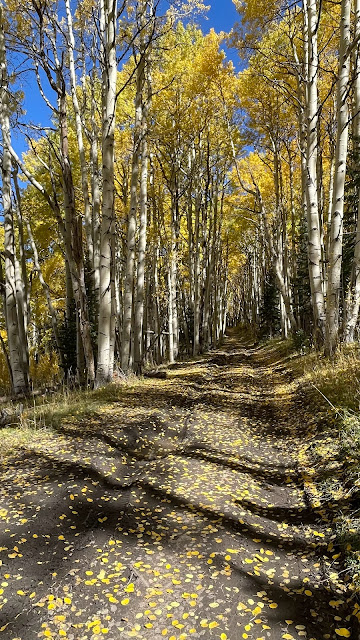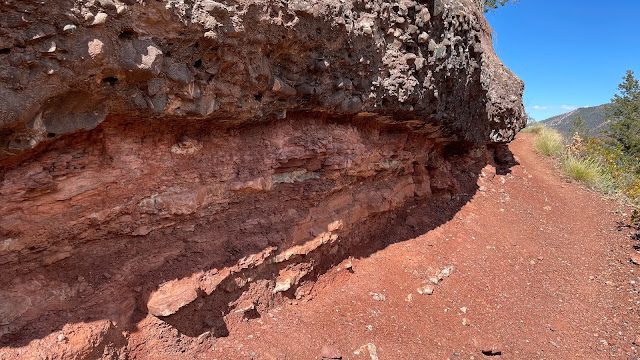In early October, Helen and I journeyed to southwest Colorado and the San Juan Mountains near Ouray. We embarked on a five-day, four-night backpack along the Dallas Trail, traveling hut to hut. Thus, we carried no sleeping bags or tents to make the load lighter. The fall colors were at their peak and admittedly, this post is more about autumn than the San Juan Volcanic Field.
We had a group of seven and this is near the start of the hike.This is our first hut, called North Pole hut. One of the peaks near here is called North Pole Peak. If you would like to know more about the hut experience you can view San Juan Huts here.
Each hut comes with a separate outhouse not far from the sleeping hut. These were very clean, modern, and well kept.
A view to the northeast toward the Cimarron Range of the San Juan Mountains. Ridgway Colorado sits in the valley of the Uncompahgre River in the valley below.
The Sneffels Range loomed large to our south as we made our way from west to east. An early season snow made the views dramatic against the changing aspens.
There was always a threat of rain during the five days (forecasted) but we managed to avoid precipitation.
Colorful descent - this time in. rocks!
As we descended below the San Juan volcanic rocks, the basement was composed of the Cutler Formation, a Pennsylvanian sandstone, shale and conglomerate that was shed off of the Ancestral Rocky Mountains.

























Looks fabulous. Great timing for the aspen!
ReplyDeleteGreat photos - and it sounds like an excellent trip! Thanks!
ReplyDelete